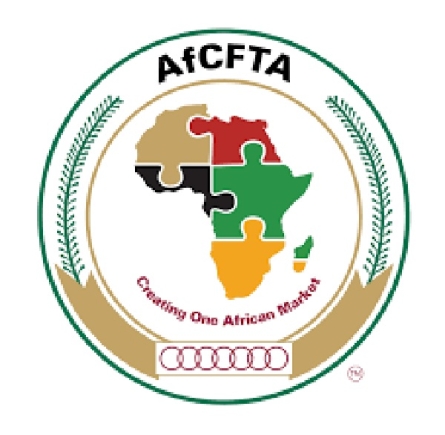The escalating trade tensions between the United States and China have sent shockwaves through the global economy, disrupting supply chains, shifting investment flows, and transforming the geopolitical landscape of international trade.
While these developments may initially appear to be a contest between two global superpowers, they also present a rare and significant opportunity for the African continent particularly through the framework of the African Continental Free Trade Area (AfCFTA).
By leveraging the disruption caused by the US-China trade war, AfCFTA has the potential to reposition Africa as a central player in global trade, attract foreign investment, enhance intra-African commerce, and assert a stronger voice in global economic governance.
Positioning Africa as a neutral trade partner
One of the most immediate strategic advantages AfCFTA can harness is Africa’s relatively neutral position in global trade disputes. In an environment where companies are seeking alternatives to markets mired in tariffs and political tensions, Africa can offer itself as a stable and non-aligned trade partner. The continent’s neutrality, combined with the promise of a single market of over 1.4 billion people, makes it an attractive destination for global trade and investment.
To fully capitalize on this, AfCFTA member states must prioritize the development of trade enabling infrastructure, such as ports, transportation corridors, and digital customs platforms. In addition, harmonizing trade regulations and reducing non-tariff barriers will be essential for presenting Africa as a seamless and predictable trade environment.
Attracting diverted foreign investment
The trade war has led many multinational corporations to diversify their supply chains and seek out new production bases beyond China. This shift creates an opening for African countries to attract foreign direct investment (FDI) that may have previously been concentrated in Asia. With its youthful population, abundant natural resources, and low labor costs, Africa presents a compelling case for investment in sectors such as manufacturing, agriculture, and textiles. Through AfCFTA, countries can develop regional value chains that reduce dependency on external markets and improve competitiveness. Creating special economic zones, offering tax incentives, and strengthening investment protection mechanisms can further enhance the continent’s appeal to investors.
Strengthening intra-African trade
A key objective of AfCFTA is to boost intra-African trade, which remains low compared to other regions of the world. The trade war highlights the risks of over-reliance on external markets, reinforcing the importance of cultivating robust internal trade networks. By deepening economic integration and accelerating the implementation of trade protocols, AfCFTA can help African countries diversify their economies and build resilience against external shocks. Support for small and medium-sized enterprises (SMEs), improvements in logistics infrastructure, and the elimination of trade bottlenecks will be critical to achieving this goal.
Leveraging strategic rivalries for infrastructure and technology
Both the United States and China continue to vie for influence in Africa, each offering infrastructure investment and development assistance through initiatives such as China’s Belt and Road Initiative and the US’s Prosper Africa. Rather than viewing this competition as a source of division, AfCFTA can use it as leverage to negotiate better terms and demand greater transparency, sustainability, and local participation in infrastructure projects. A coordinated and unified approach to engaging with global powers will strengthen Africa’s negotiating position and ensure that investment serves the long-term interests of the continent.
A unified African voice in global trade negotiations
Individually, African countries often lack the weight to influence global trade rules and policies. AfCFTA provides a platform for the continent to speak with one voice in international forums such as the World Trade Organization (WTO). A unified African position can advocate for fairer trade practices, improved access to global markets, and reforms that address the unique challenges facing developing economies. By consolidating their bargaining power, AfCFTA members can play a more proactive role in shaping the future of global trade governance.
Developing export processing zones for global markets
Finally, AfCFTA offers an opportunity to transform Africa into a global manufacturing hub through the development of Export Processing Zones (EPZs) and Special Economic Zones (SEZs). With rising labor costs in Asia and the impact of tariffs on traditional supply routes, Africa can fill the gap by offering cost-effective production for global markets. By focusing on light manufacturing sectors such as apparel, electronics, and agro-processing, and by utilizing preferential trade agreements like the African Growth and Opportunity Act (AGOA), AfCFTA nations can increase their export earnings while creating jobs and building industrial capacity at home.
Conclusion
The US-China trade war has disrupted the status quo of global commerce, but within this disruption lies an opportunity for Africa to chart a new path. Through the mechanisms and strategic vision of AfCFTA, the continent can position itself as a key player in a reconfigured global economy. By attracting investment, deepening intra-African trade, leveraging geopolitical rivalries, and asserting a unified voice in global trade discussions, Africa can not only mitigate the effects of external economic tensions but turn them into a catalyst for growth and development. The time for AfCFTA to act is now. Africa’s future as a global trade powerhouse may well depend on it.
The author is Michael Mensah Ahorlu, Team Lead - Trade Check Africa
+15132927243 / +233249210787

